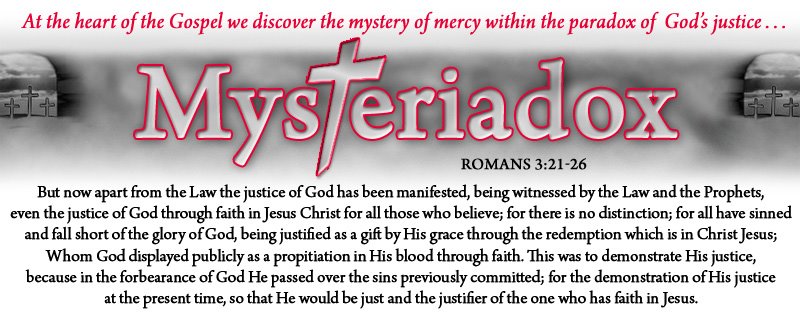I recently discovered a great little booklet by L.M. Grant (b. 1917) called "The Wonderful Paradoxes of Scripture." It beautifully encapsulates the thinking behind this blog and my other site, THEOparadox. Grant will surely earn one of our famous THEOparadox t-shirts for his work.
Without a proper understanding of the doctrine of incomprehensibility and the role of mystery and paradox (or "antinomy," if you want to call it that) in Reformed theology, we are prone to wander into all sorts of errors. These errors are sometimes difficult to detect because they get the stamp of approval from our human reason and logic. But logical consistency alone is not the guarantee of a truthful system. It can even be a hindrance (which is a paradox, indeed!). How often have we deceived ourselves by coming up with "logical" reasons for sinful behavior? One can easily arrive at a logical syllogism simply by removing the propositions that don't fit the conclusion one desires to reach. However, logical difficulties and complexities arise when we take all of the Truth we have and try to systematize it. While this is a worthwhile and beneficial endeavor, we should not think we will attain exhaustive knowledge of anything heavenly - or perfect logical consistency on every single point. Infinity is beyond our comprehension, but not beyond our reach. We can learn quite a lot about the ocean by sampling the water - yet its vastness is beyond our ability to contain. How much more the transcendent, holy, and eternal Godhead!
How tempting it is for us to discount Biblical truths that don't fit our system. But we must resist this temptation for the sake of holding and keeping the Truth. For a system to be perfectly coherent and perfectly (exhaustively) true, all of the true propositions that exist would have to be incorporated into it. Since some true propositions are unknowable to us, we can never arrive at such a system. We can systematize the major and minor points of divine revelation, form them into a generally consistent system, and identify the points at which they appear (to us) to contradict. However, without the missing pieces we may not be able to achieve perfect coherence. We can achieve a system that is exhaustively Biblically TRUE (that is, a system which includes all Biblical propositions, and is therefore without error). But because Biblical revelation does not include every true proposition that exists, our system may still lack perfect coherence in some aspects. This is because the propositions which would make the system perfectly coherent are hidden in the mind of our great and wise God. He does not reveal them, but says, "Trust Me!"
Good theology takes pains to reach the outer edges of what man can reliably know, yet it eventually finds a limit. Bad theology lays concrete in places that are barely discoverable philosophically - places where God has intentionally left us uninformed. Bad theology also finds subtle and ingenious ways to obliterate rock solid truths that have been revealed but don't seem to "make sense" or "fit" the system. Good theology always applies as many Biblical propositions as possible and in this way it maintains balance.
Some say they cannot believe what they cannot reconcile, or that unreconciled paradoxes are meaningless, or that we cannot know how to proceed practically if we don't reconcile all truths. These are utterances of unbelief. If God has revealed two truths that we cannot reconcile, far be it from us to tell HIM they are meaningless! Yet these statements are made often and rarely challenged. We maintain that unreconciled paradoxes are anything but meaningless. Rather, they are so meaningful that we cannot contain the fullness of their meaning. But how can we move forward, practically, without reconciling important theological facts? Here is an example: as we wrestle with the daily decisions of living, Scripture calls us to hold these two seemingly incompatible truths: God is sovereignly directing our steps, and we are responsible for our actions. This might make our head spin, but it doesn't leave us paralyzed. It liberates us to trust Him, to obey, to risk, and to hope - believing both are true.
As L.M. Grant advises, we must simply take the Word of God as true, even if it seems unbelievable. Should fallen dust expect to completely comprehend divine matters? No. On the other hand, should fallen dust ever distrust what God has revealed in His Word? Certainly not. Paradoxes remind us that we are fallen dust, and God is our all-wise and holy Creator who is both incomprehensible and trustworthy.
Click here to read L.M. Grant's noble work, The Wonderful Paradoxes of Scripture.
Saturday, May 15, 2010
The Wonderful Paradoxes of Scripture by L.M. Grant
Subscribe to:
Post Comments (Atom)

No comments:
Post a Comment